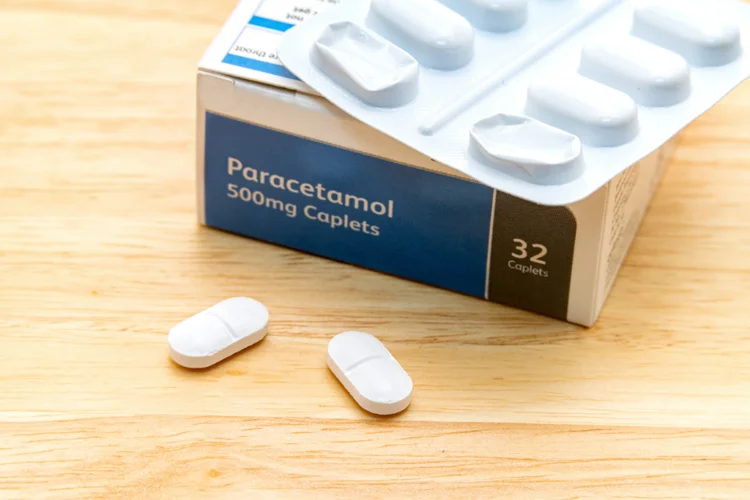Flu Medicine Singapore
What Is Flu Medicine?
Flu medications help to relieve symptoms or reduce the impact of the
influenza virus. These range from over-the-counter (OTC) options for
managing symptoms to prescription antiviral treatments that can shorten the duration and
lessen the severity of illness.
While flu medicines do not cure the virus itself, they help reduce discomfort and lower
the risk of complications.
Symptoms of Flu
Flu, or influenza, is a common viral infection caused by influenza viruses. It spreads easily
through respiratory droplets or contact with contaminated surfaces. Common symptoms include:
- Fever or chills
- Runny or stuffy nose
- Sore throat
- Cough
- Fatigue
- Headaches
- Muscle or body aches
- Some individuals, especially children, may also experience vomiting and diarrhoea
Types of Flu Medicine
1. Over-the-Counter (OTC) Flu Medicines
OTC medicines are widely available and address common flu symptoms with examples including:
-
Pain Relievers: Medication such as paracetamol reduces fever and
alleviates body aches.
-
Antihistamines: Relieve a runny nose and
watery eyes by reducing allergic-like responses.
-
Decongestants: Clear blocked
noses by reducing nasal swelling.
-
Cough Suppressants: Soothe dry coughs by calming the cough reflex.
-
Throat Lozenges: Ease sore throat irritation by coating and soothing
the throat.
2. Antiviral Medications
For individuals with severe symptoms or at higher risk of complications, such as older adults, young
children, or those with chronic conditions, antiviral drugs like oseltamivir
may be prescribed. These medications work by targeting the influenza virus, preventing it from
multiplying in the body. This helps to reduce the severity of symptoms, shorten the duration of the
illness, and lower the risk of complications. They are typically most effective when taken early
after symptom onset, ensuring timely intervention against the virus.
Things to Note When Using Flu Medication
When taking medication for the flu, it is important to:
-
Adhere to Recommended Dosages: Avoid exceeding the dosage listed on the label
or prescribed by a doctor.
-
Consult a Doctor If Unsure: Seek medical advice if you are on other
medications, have underlying health conditions, or are unsure whether a particular medication is
suitable for you.
-
Monitor Side Effects: Watch for serious allergic reactions, such as rashes,
swelling, or difficulty breathing. Seek medical attention immediately if these occur.
Practical Tips to Manage Flu Symptoms
Managing the flu requires more than simply taking medication. The following steps can help
you recover more quickly and reduce discomfort:
-
Stay Hydrated: Drink water, clear broths, or electrolyte solutions to
prevent dehydration caused by fever or other symptoms.
-
Eat Light, Nutritious Meals: Consume soups and fruits to support your
immune system, even if your appetite is reduced.
-
Rest at Home: Allow your body to recover and avoid spreading the virus
to others.
-
Practise Good Hygiene: Wash your hands regularly, dispose of used
tissues properly, and disinfect frequently touched surfaces.
When to Seek a Doctor for Flu
While many cases of flu resolve within a week with rest and supportive care, medical attention may
be necessary if symptoms worsen, persist beyond a few days, or if new symptoms arise, such as
shortness of breath, chest pain, or confusion.
High-risk individuals, such as older adults, young
children, or those with weakened immune systems or chronic conditions like asthma or diabetes, should
seek prompt medical care. Timely intervention is crucial to prevent serious complications such as pneumonia, bronchitis, or worsening of pre-existing health
conditions.
Preventing Flu
The best way to reduce the risk and impact of flu is through prevention. Annual flu vaccinations are
highly recommended, especially for vulnerable groups, and should be taken before or during flu season. Maintaining good hygiene
is also essential. Wash your hands regularly with soap, use hand sanitiser when needed, and wear
masks in crowded spaces during outbreaks. Avoid close contact with sick individuals, and stay home
if you feel unwell to prevent spreading the virus.
Flu Medicine Price
At ATA Medical, we offer a range of testing, treatment, and vaccination options for influenza at the
following prices:
|
Test / Treatment
|
Price*
|
| Consultation |
From $49.05 |
| Flu Medicines |
From $0.55 |
| Starflu 75mg / Oseltamivir (Generic version of Tamiflu) |
$49.05 / 10 capsules |
|
Influenza Rapid Test (RIDT)
|
$38.15 |
|
Influenza Vaccine
|
$38.15 |
|
Subsidised Influenza Vaccination (Pioneer Generation, Merdeka Generation, CHAS and Babies /
Newborn)
|
From $0 to $35 |
*Prices are NETT and inclusive of GST.
^Prices last updated on
Jan 28, 2026. While every effort is made to keep pricing information up to date, please contact our team to confirm the latest rates.
Where to Seek Medical Attention for Flu?
ATA Medical @ Tanjong Pagar
Address: 72 Anson Rd, #01-02 Anson House, Singapore 079911
Nearest MRT: Tanjong Pagar Station (EW15)
Contact Number: 6223 0682
Email: hi@atamed.sg
Opening Hours:
Mon - Fri: 8:30 AM to 12:30 PM, 1:30 PM to 5:30 PM
Sat: 8:30 AM to 12:30 PM
Sun & PH: Closed
Please note that our last appointment is at 5:15 PM from Monday to
Friday and at 12:15 PM on Saturday. Thank you for your
understanding.
ATA Medical @ Orchard
Address: 1 Orchard Blvd, #05-09 Camden Medical Centre, Singapore 248649
Nearest MRT: Orchard Boulevard Station (TE13)
Contact Number: 6223 0682
Email: camden@atamed.sg
Opening Hours:
Mon - Fri: 8:30 AM to 12:30 PM, 1:30 PM to 5:30 PM
Sat: 8:30 AM to 12:30 PM
Sun & PH: Closed
Please note that our last appointment is at 5:15 PM from Monday to
Friday and at 12:15 PM on Saturday. Thank you for your
understanding.
ATA Medical @ Jurong
Address: 21 Jurong Gateway Rd, #02-08 CPF Jurong
Building, Singapore 608546
Nearest MRT: Jurong East MRT Station (NS1/EW24)
Contact Number: 6348
6292
Email: jurong@atamed.sg
Opening Hours:
Mon - Fri: 8:30 AM to 12:30 PM, 1:30 PM to 5:30 PM
Sat: 8:30 AM to 12:30 PM
Sun & PH: Closed
Please note that our last appointment is at 5:15 PM from Monday to
Friday and at 12:15 PM on Saturday. Thank you for your
understanding.
Navigate to Us
Frequently Asked Questions (FAQ)
There is no single "best" medicine for the flu, as different medications
address various symptoms and help reduce the impact of the virus.
Over-the-counter (OTC) options like paracetamol can relieve fever and body
aches, while prescription antivirals such as oseltamivir are often
recommended for more severe cases or individuals at higher risk of
complications. If you are unsure, consult a doctor for personalised advice
and appropriate flu treatment.
Zyrtec (cetirizine) is an antihistamine commonly used for allergies. While
it may help relieve symptoms such as a runny nose or watery eyes, it does
not address other flu symptoms like fever or body aches. Medications like
paracetamol can help manage these symptoms, and prescription antivirals may
reduce the impact of the virus.
No tablet can "get rid of" the flu entirely, but antiviral medications like
oseltamivir may help reduce the severity and duration of the illness when
taken early. Over-the-counter (OTC) tablets like paracetamol can effectively
alleviate symptoms such as fever and body aches. At ATA Medical, we offer
flu testing and treatment with same-day consultations. Contact us or book an
appointment via WhatsApp for more information.
Antiviral medications like oseltamivir can help to reduce flu severity and
duration, especially if taken early after symptom onset. At ATA Medical, we
provide flu testing and treatment with same-day appointments available.
Reach out to us or book an appointment through WhatsApp to learn more.
While there is no instant cure for the flu, recovery can be supported
through rest, hydration, nutritious meals, and appropriate medications for
symptom relief. Antiviral drugs such as oseltamivir may also help speed up
recovery in some cases, particularly if taken early after symptom onset.
Panadol (paracetamol) is commonly used to reduce fever and relieve body
aches, which are common flu symptoms. While it can support recovery by
alleviating discomfort, it does not treat the underlying virus. Antiviral
medications, such as oseltamivir, may help limit the impact of the virus
when prescribed by a doctor.
Panadol (paracetamol) is often used to reduce fever and ease body aches,
which are typical symptoms of the flu. While it helps alleviate discomfort
and supports recovery, it does not target the underlying virus. Antiviral
medications like oseltamivir may be prescribed to help reduce the severity
and duration of the illness.
Claritin and Zyrtec are antihistamines commonly used to manage allergy
symptoms. While both may offer some relief for flu-related nasal symptoms,
they are not specifically designed to treat the flu. Their effectiveness can
vary between individuals depending on their response to the medication. If
you are unsure which medication is suitable for you, it is best to consult a
doctor for proper treatment.
The flu typically progresses through several stages, though the duration of
each stage can vary from person to person. The incubation period usually
lasts 1 to 4 days after exposure to the virus. This is followed by the onset
of symptoms such as fever, body aches, and fatigue. Peak symptoms often
occur 2 to 3 days after symptoms begin, with recovery typically taking 5 to
7 days. If symptoms persist or worsen, it is advisable to consult a doctor
for proper evaluation and treatment.
Recovery can be supported by getting plenty of rest, staying hydrated,
eating nutritious meals, and using medications to relieve symptoms.
Antiviral medications may shorten the duration of the flu if taken early
after symptoms begin but must be prescribed by a doctor.
There is no pill that can completely "stop" the flu, but antiviral
medications like oseltamivir can help limit the virus's impact by reducing
its severity and duration. At ATA Medical, we offer flu testing, treatment,
and vaccination with same-day consultations. Book an appointment or contact
us through WhatsApp to learn more.
There is no way to completely "flush out" the flu, but staying hydrated,
resting, and using medications to relieve symptoms, such as those for fever,
congestion, or body aches, can support recovery. In more severe cases,
prescription antiviral medications like oseltamivir may be necessary. It is
best to consult a doctor for proper treatment and care.
There is no single best medicine for the flu, as different medications
address specific symptoms and their effectiveness can vary from person to
person. Paracetamol is commonly used to relieve fever and aches, while
antiviral medications may help reduce the severity and duration of the
illness. If you are unsure, consulting a doctor for proper treatment is
recommended.
Vitamin C may support overall immune health, but it has not been proven to
cure or significantly reduce flu symptoms. Managing the flu effectively
includes staying hydrated, getting plenty of rest, eating nutritious meals,
and using medications to relieve symptoms like fever or congestion. In more
severe cases, a doctor may prescribe antiviral medications to help reduce
the severity and duration of the illness.
There is no one-size-fits-all medicine for the flu, as different medications
target specific symptoms and their effectiveness may vary between
individuals. Paracetamol is often used to reduce fever and relieve aches,
while antiviral medications can help lessen the severity and duration of the
illness. If you are uncertain about the best treatment, it is advisable to
consult a doctor for personalised care.
Non-drowsy flu medicines include certain decongestants to relieve nasal
congestion, antihistamines to manage a runny nose and watery eyes, and pain
relievers like paracetamol to reduce fever and body aches. It is important
to follow the dosage instructions carefully for any over-the-counter
medications. If you are unsure about which medication to take or how to use
it, consulting a doctor for proper guidance is recommended.
Cold medicines are designed to relieve symptoms like nasal congestion,
sneezing, and a runny nose. Flu treatments may also include antiviral
medications to reduce the severity and duration of the influenza virus. At
ATA Medical, we offer treatment for common illnesses such as cold and flu
with same-day appointments. Contact us or book an appointment via WhatsApp
to learn more.
Cough suppressants and over-the-counter flu medicines like paracetamol and
decongestants can help manage symptoms such as cough, fever, nasal
congestion, body aches, and sore throat. For the flu, antiviral medications
like oseltamivir may be prescribed by a doctor to reduce the severity and
duration of the illness.
Medicines such as paracetamol, decongestants, and antihistamines can help
relieve flu-like symptoms, including fever, nasal congestion, body aches,
runny nose, and sore throat. For more severe cases, antiviral medications
may be prescribed. If unsure about which medication to take, consult a
doctor for proper guidance.
There is no single best medicine for flu and sore throat, as different
medications serve different purposes and their effectiveness can vary from
person to person. Paracetamol is often used to reduce fever and relieve
pain, while lozenges and throat sprays can provide soothing relief for a
sore throat. Consulting a doctor can help determine the most suitable
treatment based on individual symptoms and needs.
The flu cannot be "cured" instantly, but prescription antiviral medications
like oseltamivir may help shorten its duration and reduce its severity.
Over-the-counter medicines such as paracetamol can relieve fever and body
aches, while antihistamines may help with symptoms like a runny nose. If
symptoms are severe or persist, it is advisable to consult a doctor for
proper evaluation and treatment.
Flu symptoms can be managed with paracetamol for fever and body aches,
decongestants for nasal congestion, antihistamines for a runny nose, and
cough suppressants for a dry cough. If symptoms worsen or persist,
consulting a doctor for proper evaluation and treatment is recommended.





